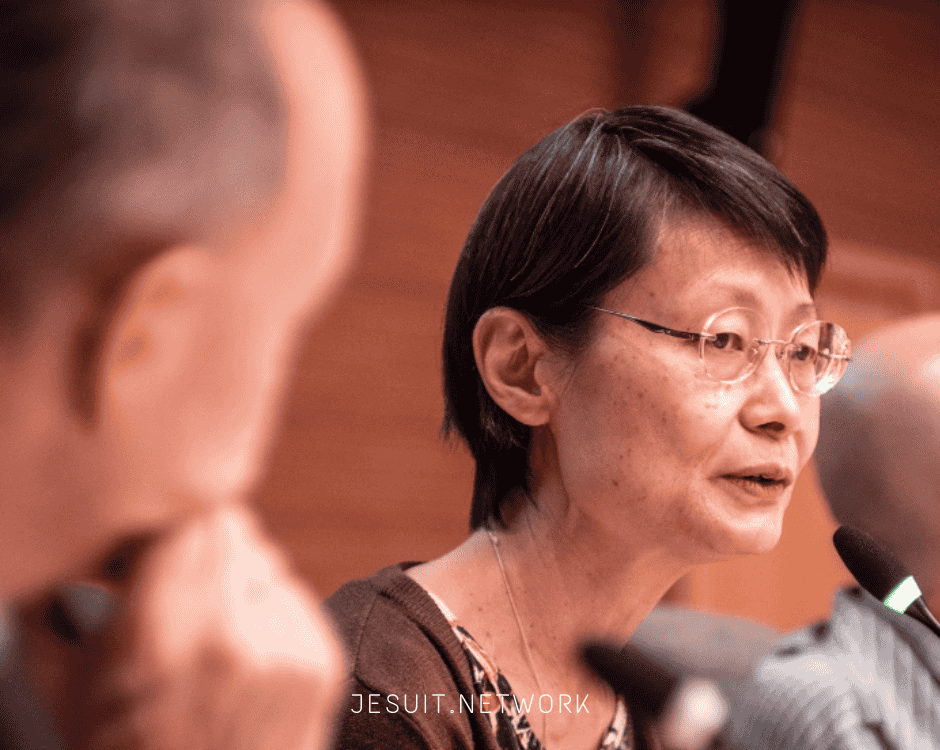This website uses cookies so that we can provide you with the best user experience possible. Cookie information is stored in your browser and performs functions such as recognising you when you return to our website and helping our team to understand which sections of the website you find most interesting and useful.
Day 1: Insights from 2nd Conference on Jesuit Networking
“This is not a normal group.” That’s how Fr. Dani Villanueva, SJ, introduced the 2nd International Jesuit Networking Conference, speaking to around 35 Jesuits and colleagues gathered from around the world. He pointed out that the diversity of cultures and fields represented made this conference unique: we were not gathered because of shared focus on a specific field of study or apostolic effort. Rather, this group came together because all of our work, at one point or another, faces a question of how to share that work with others, especially across international borders.
This is not new territory for Jesuits and their colleagues: the Society of Jesus was a deliberately multinational organization from its very first days. But in the last forty years—marked from Pedro Arrupe, SJ’s, recognition of the need for the Jesuit Refugee Service—Jesuits have made a more deliberate attempt to link together the wide variety of Jesuit works to share resources and focus efforts on common apostolic goals.
This second conference on networking is organized around three central questions about Jesuit networking today:
- Network Strategy: Why do some networks work better than others? How can we design and develop the right kind of networks for particular situations?
- Network Culture: How do we promote and foster collaboration and networking within our institutional and local cultural patterns and practices?
- Network Governance and Leadership: How should we coordinate, influence, align, and govern an ecosystem of networks?
The first day of the conference focused on the topics of strategy and culture, with input from academic experts at the Georgetown McDonough School of Business followed by brief case studies from network practitioners reporting on their networks’ experiences, successes, and challenges.
Prof. Chris Rider discussed different approaches to structuring a network, pointing out that no single optimal network strategy exists, and that since networks are self-organizing, the structures that do arise, once formed, may both be different than the officially “designed” intent and hard to alter.
Case studies on network strategy were offered by the Ignatian Solidarity Network (Chris Kerr), Educate Magis (Eamonn McGuinness), and Alpha Sigma Nu (Kate Gaertner). Group discussion afterwards looked at the challenges of helping people recognize the opportunity for networks to form in order to pursue shared goals and share best practices, and the challenge of identifying objectives for the whole Society as an international organization as one of the limits on our ability to fully realize the potential of Jesuit networks.
After lunch with the faculty and staff of the business school, Prof. Robert Bies introduced the topic of network culture, asking what the “conditions of possibility” are for the practice of networking to flourish in the Jesuit world. He reminded participants that leaders ultimately reveal their commitment to the collaboration and the shared efforts of networks not in what they say, but in the questions they ask, how they listen, and the time on their calendars devoted to doing so.
After a report on the survey of Jesuit networks (Dr. Tina Facca), case studies from Christian Life Community (Ann Marie Brennan) and the World Union of Jesuit Alumni (Alain Deneef) helped the conference consider the impact of cultural patterns on the formation of networks. Discussion afterwards focused on the need to recognize that Jesuit networks operate among and between a variety of cultures and that no single monolithic network culture is possible or desirable. Instead, questions turned to how to facilitate network practices that are aware of differences in cultural patterns and expectations and help foster communication between cultures.
As the conference moves into Day 2 and focuses on the topic of network governance and leadership, you can continue to follow our conversations through @JesuitNetwork on Twitter and through the Jesuit Networking Facebook page, featuring short interviews with conference participants.





